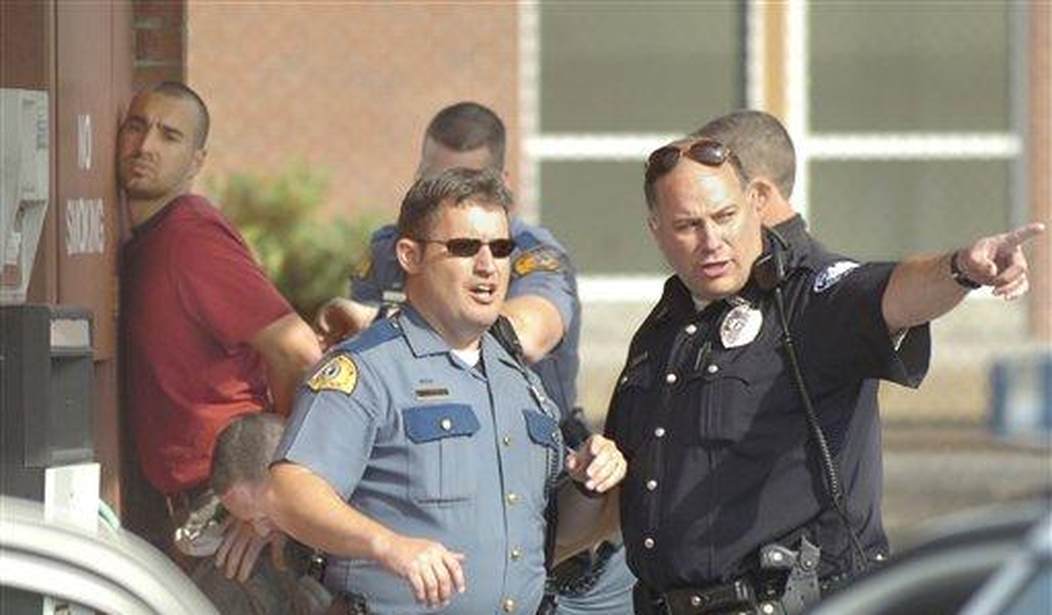Last July, a new law went into effect in Washington state that was described as “police reform.” House Bill 1054 made significant changes in how the police are allowed to do their jobs. Police unions had been protesting the measure, saying that it would negatively impact their ability to control crime, but the state’s Democrats cheered the bill as a way to bring more “equity” into the system. One of the changes put in place by the bill was a rule saying the police officers were no longer allowed to engage in high-speed chases except in very limited circumstances. In other words, if the cops see a driver doing something wrong and turn on their sirens and flashers but the motorist doesn’t pull over, there isn’t much they can do about it. To the great surprise of nobody with an IQ higher than tepid water, motorists have begun ignoring the police in increasing numbers and simply refusing to pull over. (KING5 News)
The Washington State Patrol (WSP) said drivers are increasingly refusing to stop for troopers – and other law enforcement agencies also said this is becoming a common occurrence.
The Northwest News Network reports that from January 1 to May 17 of this year, the agency logged 934 failure-to-yield incidents. While the patrol didn’t track this in the past, veteran troopers said there’s been a dramatic uptick in drivers fleeing traffic stops.
“Something’s changed. People are not stopping right now,” said Sgt. Darren Wright, a WSP spokesperson with 31 years on the job. “It’s happening three to five times a shift on some nights and then a couple times a week on day shift.”
It’s not just the State Police reporting this trend. Local cops are reporting the same thing. The Puyallup Police Department reported 148 drivers fleeing from patrol cars from July 26 of last year through May 18, 2022. The Police Chief in Lakewood, Washington told reporters that they are seeing this happen on average at least once per day.
The police believe that many people who hit the gas rather than pulling over are either drunk drivers or people in stolen vehicles. In other cases, there is no clear indication of why the suspects decided to flee.
The police aren’t allowed to give chase unless there is an increased bar of “reasonable suspicion” that the driver is impaired or there is “probable cause” to believe that the driver had committed a violent crime or sexual assault. This has basically put an end to high-speed pursuits because if they guess wrong, they won’t wind up getting a conviction anyway and the department could be tied up in endless lawsuits.
This was all entirely predictable and, in fact, state Republicans and police unions did predict it last year. This shouldn’t have required a rocket scientist to figure it out. Your average, law-abiding citizen who may have committed a minor traffic infraction is probably still going to pull over when the police hit their lights. But if you know you are driving while intoxicated or you’ve stolen a car or have outstanding warrants, why would you pull over for the cops when you know they can’t chase you? Criminals will clearly be happy to risk hitting the gas and making a clean getaway rather than being hauled off to jail.
This is yet another item in a long list of examples of “police reform” going on around the nation. When you reduce the disincentive for committing a particular crime, you get more of that type of crime. When you announce that the cops can no longer chase you, criminals will flee since they have nothing to lose. And we’re talking about a lot more than just your random person who had a few too many beers. Seemingly random traffic stops are one of the most common ways that people with outstanding warrants wind up being taken into custody. That tool is now unavailable to the police in Washington in most cases, so there are going to be more wanted fugitives out there roaming the roads.









Join the conversation as a VIP Member